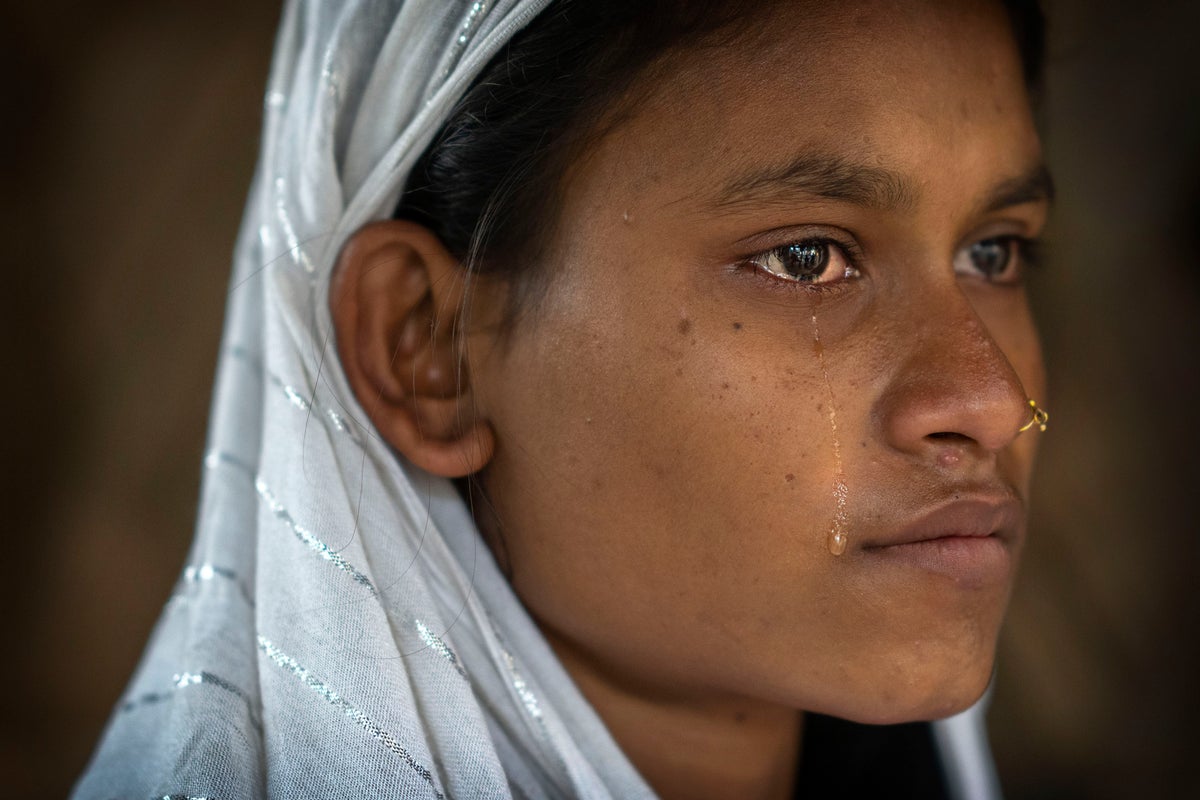
Standing outside the local police station in her village in northeast India, 19-year-old Nureja Khatun is anxious. Cradling her 6-month-old baby in her arms, she has been waiting to catch a glimpse of her husband before the police take him away to court.
Nearly an hour later, she sees her husband, Akbar Ali, for just a few seconds when he is shuffled into a police van. An officer slams the door in her face before she is able to get any answers.
“Please release my husband. Otherwise take me into custody as well,” she pleaded.
Khatun’s husband is one of more than 3,000 men, including Hindu and Muslim priests, who were arrested nearly two weeks ago in the northeastern state of Assam under a wide crackdown on illegal child marriages involving girls under the age of 18.
The action has left her — and hundreds of other women like her who got married under 18 — in anguish. Many of the women, who are now adults, say their families have been torn apart, leaving them angry and helpless.
Khatun relied on Ali, with whom she eloped in 2021 when she was 17, to take care of her. Earning 400 rupees ($5) a day as a laborer, Ali was the sole breadwinner in their family, and the couple had a baby girl six months ago.
“Now there is no one to feed us. I don’t know if my family can survive,” Khatun said.
The stringent measures are being carried out in a state, home to 35 million people, where many cases of child marriage go unreported. Only 155 cases of child marriages in Assam were registered in 2021, and 138 in 2020, according to the National Crime Records Bureau.
In India, the legal marriageable age is 21 for men and 18 for women. Poverty, lack of education, and social norms and practices, particularly in rural areas, are considered reasons for child marriages across the country.
UNICEF estimates that at least 1.5 million girls under 18 get married in India every year, making it home to the largest number of child brides in the world — accounting for a third of the global total. India’s National Health Family Survey data shows that more than 31% of marriages registered in Assam involve the prohibited age group.
The state government passed a resolution last month to completely eradicate the practice of child marriage by 2026.
In some districts, teenage pregnancies are as high as 26%, said Assam’s additional director general of police AVY Krishna. “These child marriages have become a social evil and as a result the mortality rates have been quite high,” he said.
While the arrests have sparked massive distress among families, with women sobbing outside police stations across the state, the punitive action has also drawn scrutiny from lawyers and activists.
Some men, accused of marrying girls aged between 14 and 18, are being charged under India’s law banning child marriage, which carries a jail term of two years. Other men, accused of marrying girls below 14 years, have been charged under a more stringent law that protects children from sexual offenses. This is non-bailable, with jail terms ranging from seven years to life.
Assam police defended their actions as legal under both of these laws, but the High Court in the state’s capital, Guwahati, has questioned the arrests. “At the moment, the court thinks that these are not matters for custodial interrogation,” it said on Tuesday.
Others said the government should raise awareness through education and social campaigns instead of arrests. “According to Supreme Court guidelines, arrests should be the last resort,” said senior advocate Anshuman Bora. “Out of the blue, they decide to start making mass arrests to tackle the problem. Instead, they should focus on social reforms to stop it."
Activists and political opponents in the state have accused the Hindu nationalist Bharatiya Janata Party (BJP) — Indian Prime Minister Narendra Modi's party — in power in Assam of carrying out arrests in districts and areas home to many of the state’s Bengali-speaking Muslims.
Critics say the community, which migrated over the years from neighboring Bangladesh, has often been marginalized by authorities, including a contentious citizenship registry in the state that they say discriminated against Muslims.
“We have found that people of all religions have been involved in child marriages,” said lawyer and social activist Hasina Ahmed. “We must not judge communities like this. We must not see caste and religion. We must focus on the investigations and proceed legally to solve the issues."
Officials have denied the accusations and say hundreds of Hindu men have also been arrested.
Ahmed said the arrests were doing more harm than good in Assam’s communities. A majority of the affected wives were uneducated, unemployed and came from poor families where their husbands were the sole earners.
“The government could have penalized people for engaging in the practice starting from today. Punishing people now for old child marriages is not appropriate,” she said.
Radha Rani Mondal, 50, is determined to get her son out of jail, but says she doesn’t have the money or the know-how to navigate the legal system. Her 20-year-old son was arrested on Feb. 4 and her 17-year-old daughter-in-law is pregnant. She spent her last 500 rupees ($6) to hire a lawyer, whom she owes 20,000 rupees ($250) more.
“I have been going to the police station and to the lawyer every day on an empty stomach. On one hand, I have to arrange money for legal expenses and on the other, I have to run my home and take care of my daughter-in-law. It is very difficult. I feel helpless,” she said, crying.







